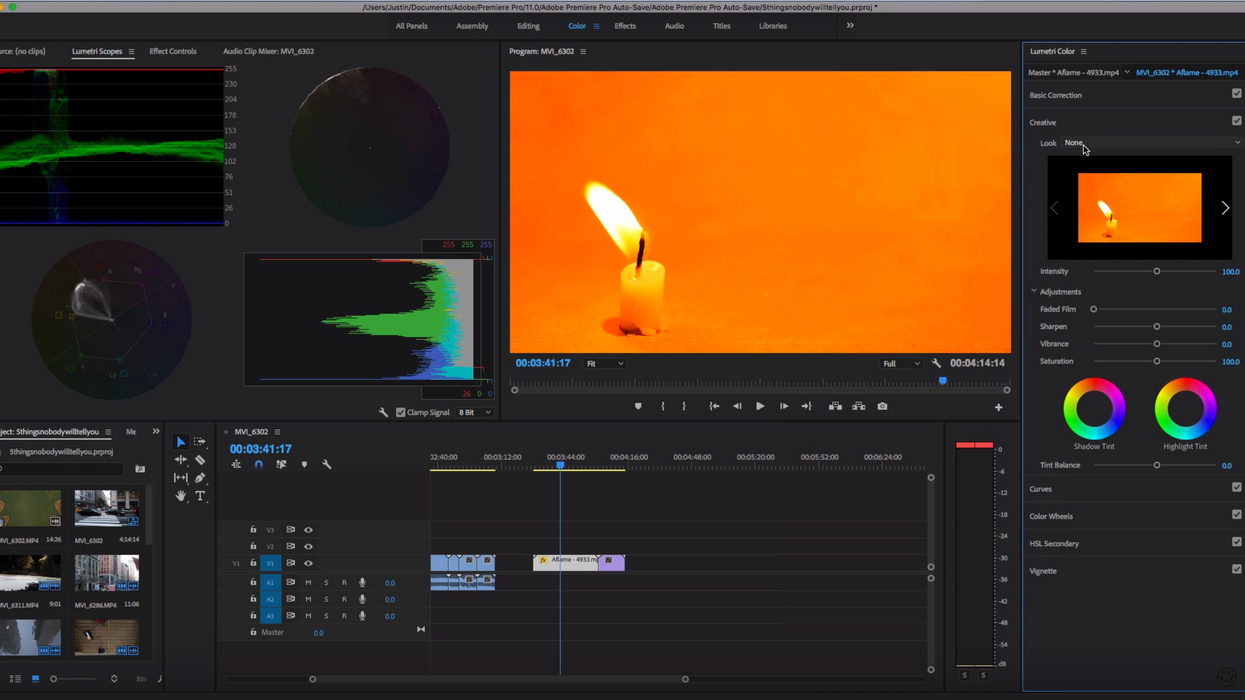5 Things We All Wished We Knew About Editing When We First Started
Some of the things you stress over as a beginner editor are not the things you stress over as a pro.

If you're new to the whole film editing thing, you're most likely learning all you can about how to navigate your NLE, from how to establish an efficient workflow to which export settings you should use. While all of that stuff is important, there are some other, less straightforward lessons that you'll pick up the further you go in your career, and to give you a better idea of what they are, editor Justin Odisho lists five of them in the video below.
I don't know about you, but when I first started editing videos all I wanted to do was replicate the work of people I admired. Every sweet transition, video effect, speed ramp, whatever—I wanted to master them all. I'd watch hours of Andrew Cramer's Video Copilot tutorials to try and get a handle on what I thought made video editing cool, but at the end of the day when I looked at what I had made, I was disappointed to see something that wasn't up to par.
I followed every step, so why wasn't my stuff turning out exactly like what I saw in the tutorials? What was I doing wrong? Well, the answer is simple: I may have been learning how to do cool edits, but I wasn't learning how to do good editing.
This is the focal point of what Odisho talks about in his video and it's something you may not spend hours learning about, because, frankly, the subject is kind of heavy and boring. However, the five pieces of advice Odisho offers up are incredibly important to understand if you want to not only become a good editor but also if you want to stay positive and keep your passion alive.
It's probably a preset
Okay, yes, a lot of the cool effects you see in videos are presets that you can get anywhere, but that's not the point Odisho is trying to make. The point is to not get disheartened when you see an awesome video, thinking, "Man, I'll never be that good." First of all, yes you will, and second, a lot of those effects are not as complicated or advanced as they seem. So, take some time to really discover different presets, learn how to use them, and then give yourself permission to not know every damn thing about editing right off the bat.
Editing is what you don't see
If you're like me, you first were attracted to editing because of some amazing, high-energy video that manipulated footage in a crazy awesome way. I get it—that kind of kinetic editing is sexy as hell, but editing isn't always complicated transitions and stunning video effects. Most of the time it's just your everyday cut, but that everyday cut, as well as the thousands that proceed it on your timeline, eventually stitch together (hopefully) a beautiful and thoughtful visual story. And all of that work is largely invisible, which is a good thing.
You can't always fix it in post
It's easy to fall prey to the "fix it in post" mentality, but don't. So many young filmmakers and editors make this mistake because they 1.) underestimate the power of their production tools, 2.) overestimate the power of their post-production tools, and 3.) are lazy. The key to solving this issue is knowing your equipment, as well as your NLE like the back of your hand. Understand the things you can and can't do once you head into post, like adding a grade to a poorly exposed image or cleaning up bad audio.
Garbage in, garbage out
The greatest gift a filmmaker can give to an editor is clean, high-quality footage and audio because the quality of the final product can only be as good as its raw material. If you get grainy, muddy footage, you're not going to be able to give back anything but grainy, muddy footage—it might be slightly less so after you clean it up a bit, but it won't be all that pretty. So, if you're shooting and editing your own project, do everything in your power to record great visuals and audio.
Editing doesn't always have to be traditional
Okay, the original phrasing of this one caught me off-guard a little at first. I was like, "Wutchu mean 'editing doesn't always matter?'" The point, however, is that different projects call for different types of editing. If you're working on a feature film, you might approach it in a more standard way, whereas if you're working on a short form video, a music video, or even a video for social media, you may want to employ editing methods that are more nontraditional. Editing is storytelling and there are countless ways to tell stories.
What are some other things new editors should learn about the craft? Let us know down in the comments.
Source: Justin Odisho


















